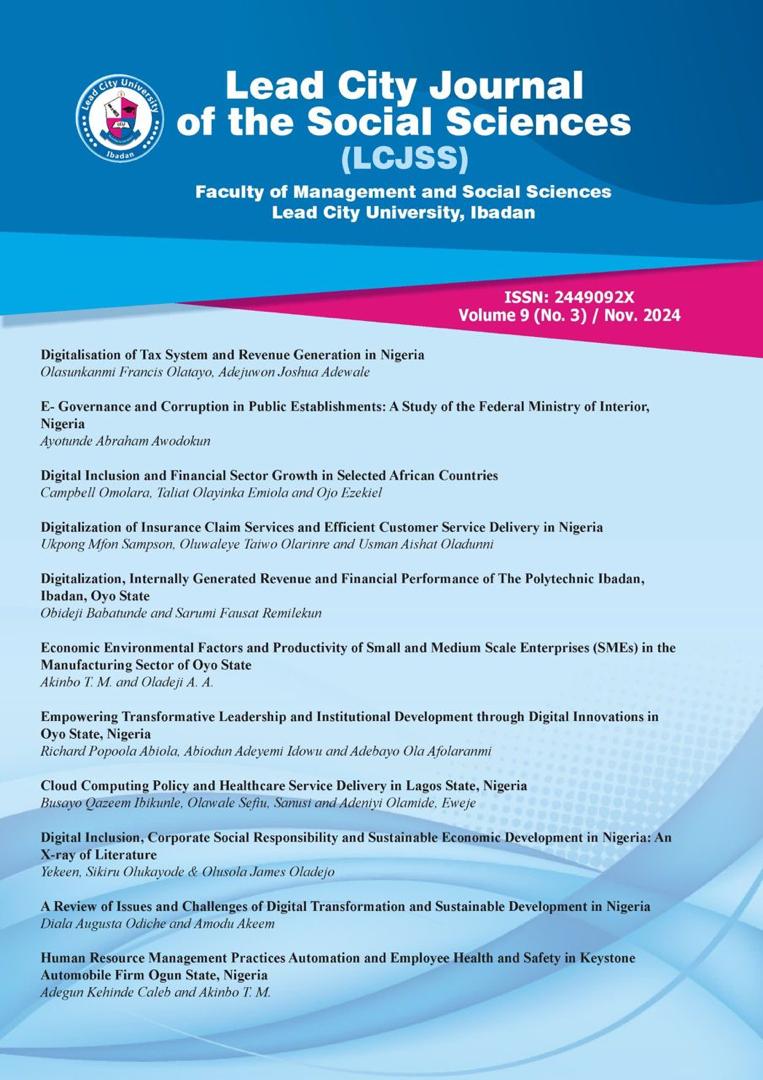Digitalisation of Tax System and Revenue Generation in Nigeria
Keywords:
Tax Administrators, Tax Collection, Tax Compliance, Tax Evasion, Tax Risk.Abstract
The problem of tax evasion and other issues limiting maximum tax revenue collection in Nigeria is such that contemporary tax practice should encourage tax administrators to embrace Information and Communication Technology (ICT) to revolutionize tax processes and alleviate some of the difficulties associated with manual tax processing in Nigeria. This study examined tax digitalization and the problem of revenue collection in Nigeria. A descriptive research design was employed, and a sample size of 352 tax administrators was determined using the Taro Yamane formula (1967) from a population of two thousand nine hundred and thirty-two (N=2,932) operating in southwest Nigeria. Data were collected by means of an online questionnaire with a reliability test of 0.7747 > 0.70. Four hypotheses were tested using Chi square and regression analysis with the aid of an Excel sheet and SPSS. The findings revealed that Tax Digitalization has a significant relationship with Tax Revenue and also showed that Tax Digitalization has a significant effect on Tax Evasion. The study concluded that if adequate e-tax policies are implemented, and qualified and competent IT personnel are equipped, tax digitalization can curtail Tax Evasion and reduce Tax Risk to the minimum in Nigeria. According to the study, tax collectors of all quantities should invest more in ICT and embrace ICT in tax collection because it boosts Nigeria's tax revenue drive. This should be accomplished by automating the entire tax filing process, from filing to receiving a tax clearance certificate, to reduce tax evasion and increase tax revenue generation.

